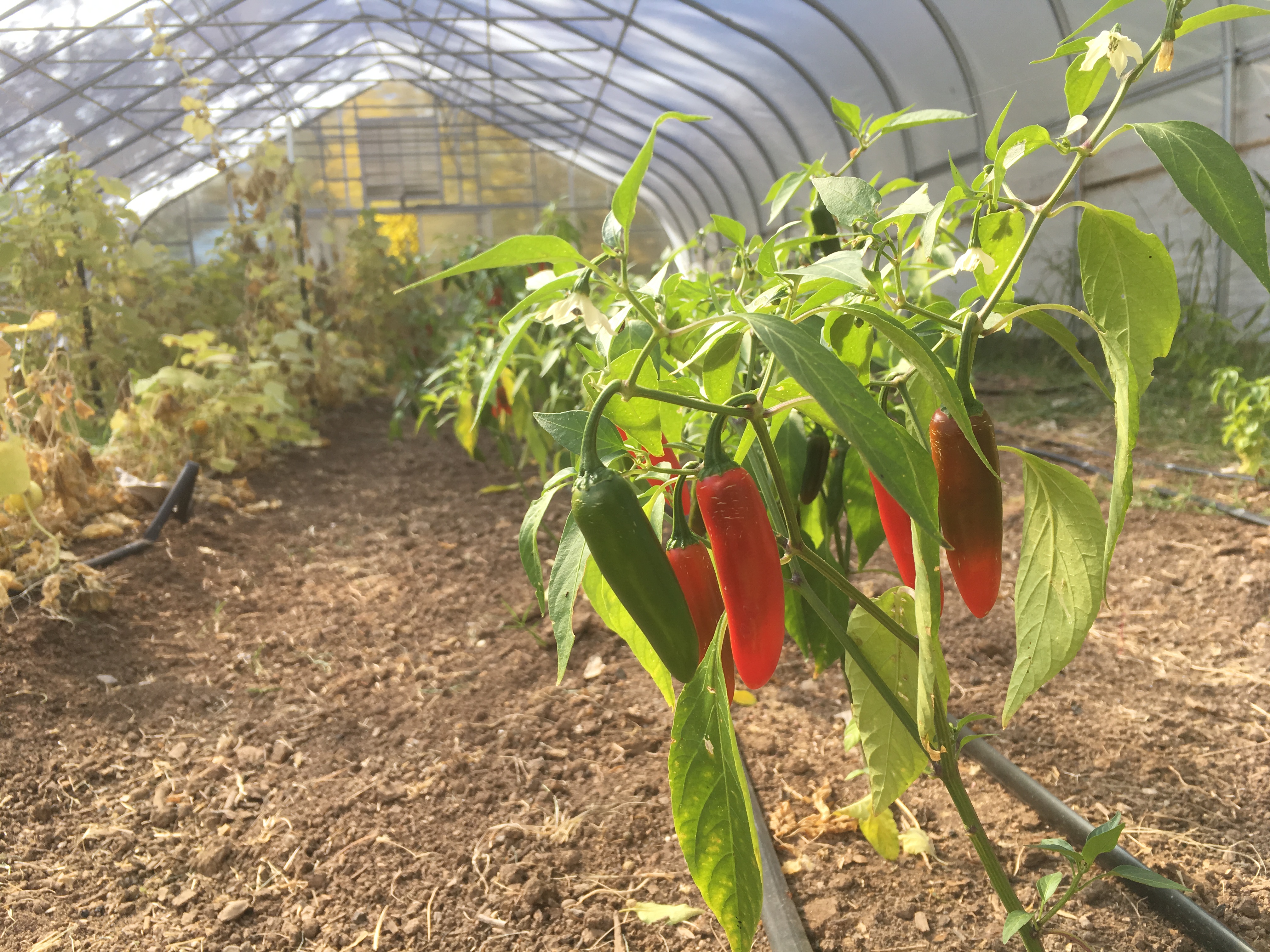
Red Chiles, Lavender & Margaritas – A New Mexico Food Adventure
What better time to visit New Mexico than the Dia de los Muertos timeframe.
Cooler weather.
Festive celebrations.
And harvest!
A Return to the Pueblos and Poblanos
I envisioned my first trip to New Mexico in years revolving around chiles: breakfast, lunch and dinner.
A visit to Los Poblanos Historic Inn & Organic Farm would kick off this long-awaited return to the Southwest. To my delight, this luscious rustic modern farm is just a few minutes outside of Albuquerque.
Giant trees shade the long drive into Los Poblanos, that oh-so-typical scene when the destination is country bliss, most anywhere in the world. The view never gets tiring.
Every other Friday during the high season, guests can tour the Los Poblanos property on “Walks With Wes,” where you can see gardens, learn about sustainable agriculture, and peek at the first swimming pool built in Albuquerque decades ago, alongside a historic house.
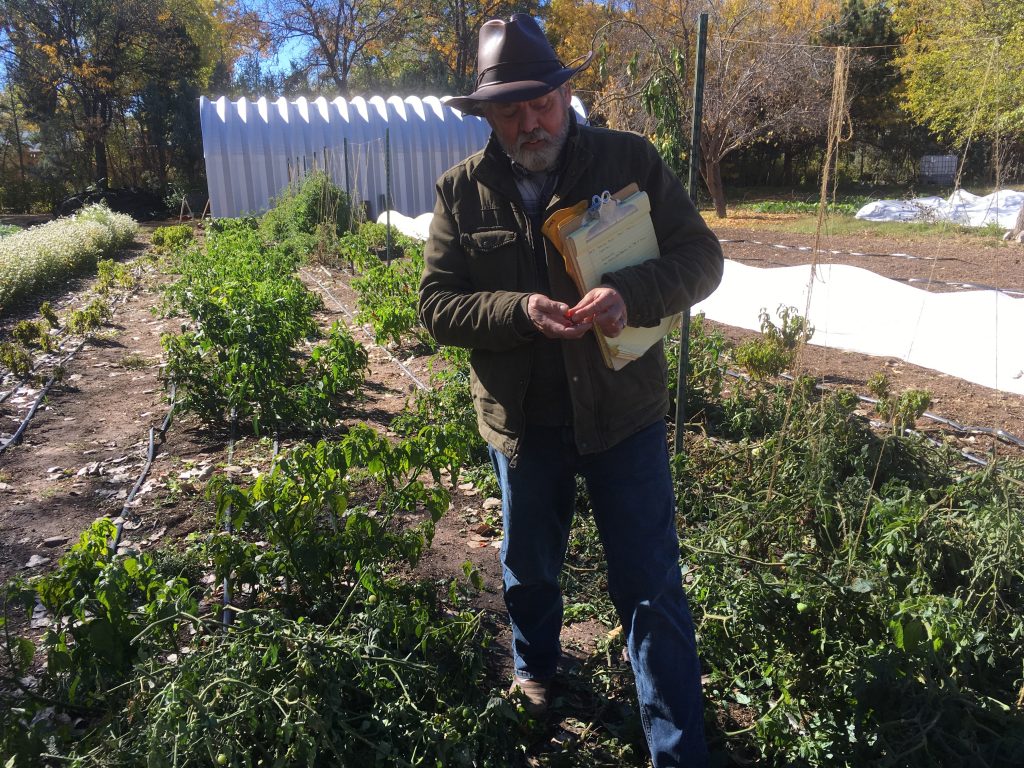
Three-month old peacocks, still fuzzy, just growing feathery head combs with blue and green iridescence barely forming.
Black and grey guinea hens with red jowls, wreaking havoc as they ran around in clusters like mimbres black-line pottery from the Acoma pueblo.
Rescued alpacas munching on grass.
Just another Fall day in heaven.
On this sunny day, as we traverse rows of plantings teeming with peppers, sunflowers and tomatoes, Sand Hill Cranes fly overhead, belting out haunting squawks unheard at home in California. There, Canadian geese qualify as exotic. Here, the elegant white cranes cluster in the skies on their migration from Alaska, some heading further to Mexico.
The tour is packed with the kind of detail that makes one appreciate the high cost of farm-to-body (or table) products. It turns out the row of trees whose beauty I’d just admired represent a kind of nightmare, for some.
Wes explains that plant-by-plant, Los Poblanos gardeners have to rake colorful leaves out of each lavender plant. This is truly an exercise in futility, that is until winter’s chill bares the trees.
Why? Grosso lavender makes up the bulk of the 3 tons of lavender harvested in 2018. A single row produces around 430 pounds of the certified organic flowers. That’s a lot of raking.
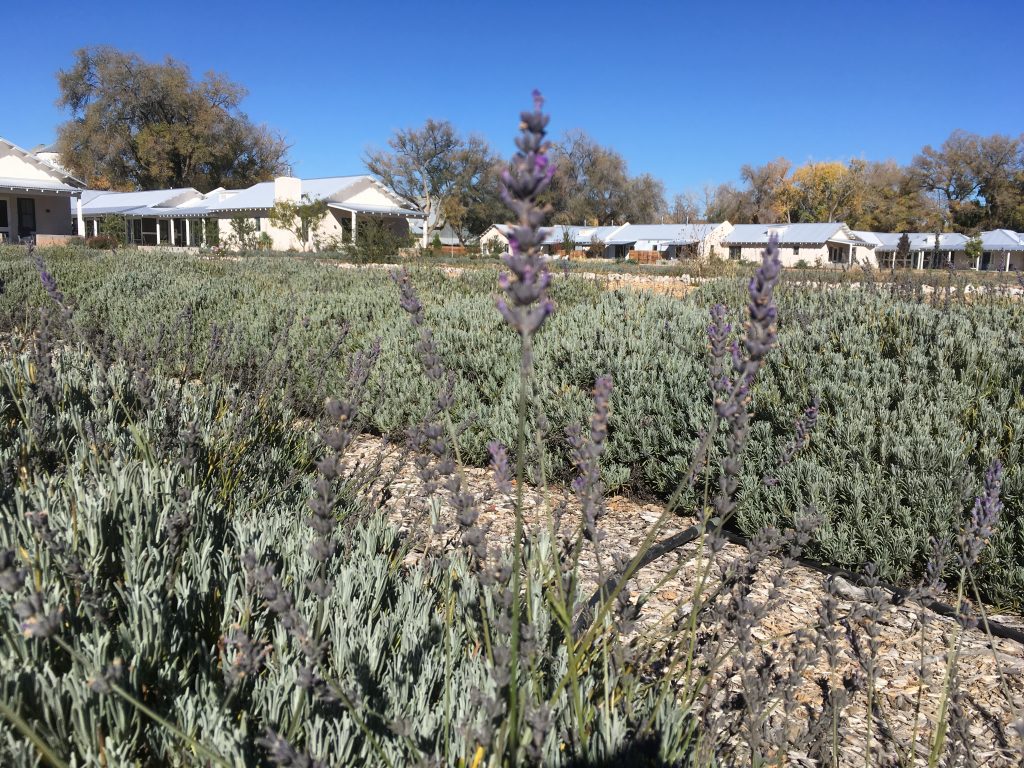
Judy, the head farmer for the vegetable gardens, sits atop an orange tractor moving lavender cuttings (post-processing), vegetable refuse and even shavings from a local wood worker’s table shavings to create compost that will nourish the next set of plantings.
We strolled through rows of peppers and sunflowers, on to the area where produce becomes products.
From farm to drying in the barn and quonset hut to being dried and sold or distilled in copper stills, lavender finds a new life in Los Poblanos soaps, lotions, and elixirs made a nearby building. It’s all sold just a few feet away, in the Farm Shop.
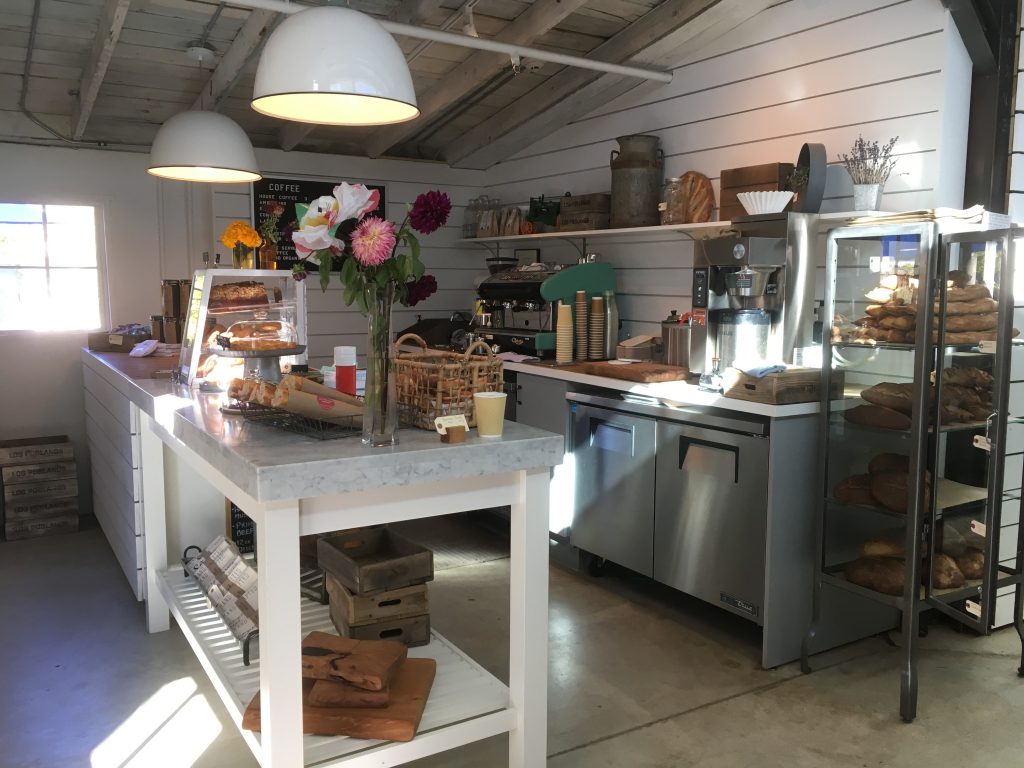
Honey and Bee Farm Experiences
Starting in 2019, honey will be produced, harvested, bottled, and labeled onsite.
With increased honey production, Los Poblanos fans are sure to look forward to more programs and products related to beekeeping and honey: Wes described the idea of a honeybee experience that melds relaxation with education with apiary appreciation.
At a bee house guests could meditate, perhaps with honey-infused cocktail in hand (or standing by), or with a honeyed lavender tea. The thousand-finger massage has nothing on Poblano’s bee house of the future. Here, the serious relaxer would find themselves atop pillows nestled on top of hives, lulled by bees vibrating in the calming key of C. Bzzzzzzzz
Where did the amazing bee experience idea come from? The Internet, of course.
Lara, a fellow bee expert and worker bee at Los Poblanos, had heard of Slovenian bee tourism based around super-efficient hives that produce loads of honeycomb and honey, designed to ease removal of pests like mites. (Api-tourism has subsequently become my obsession.)
The hives live in sauna-like tiny houses where bee-lovers can experience the feeling of being in a hive without the stinging after-effects.
The benefit goes beyond the eco-tourism aspect. Wheelchair-bound beekeepers can wheel in and do their work. Overall the format improves the care of bees in all seasons.
Keep an eye on Los Poblanos for updates on this vision.
Los Poblanos was not always destined for culinary bliss.
The property first hosted Natives, then poblanos, from Puebla, Mexico who worked the land before it became a commercial dairy. At one point, former owners considered sub-dividing the property which naturally brought developers sniffing around. The kids rallied and got the property on the historic register.
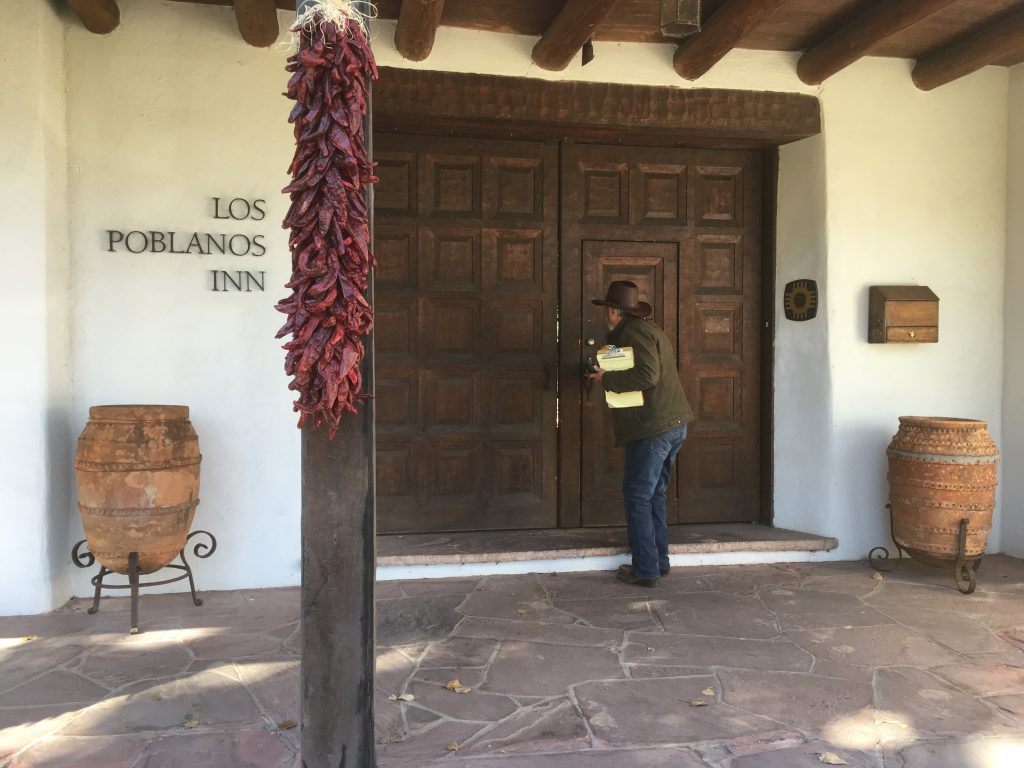
Historic properties wrestle with modernizing for efficiency and convenience versus keeping original character intact. So goes Los Poblanos. We ended the tour with a pop into the greenhouse which resides within a 1930s house. Wes described the challenges of weighing the benefits of modern heating and ventilation systems versus retaining the home’s original character and beauty.
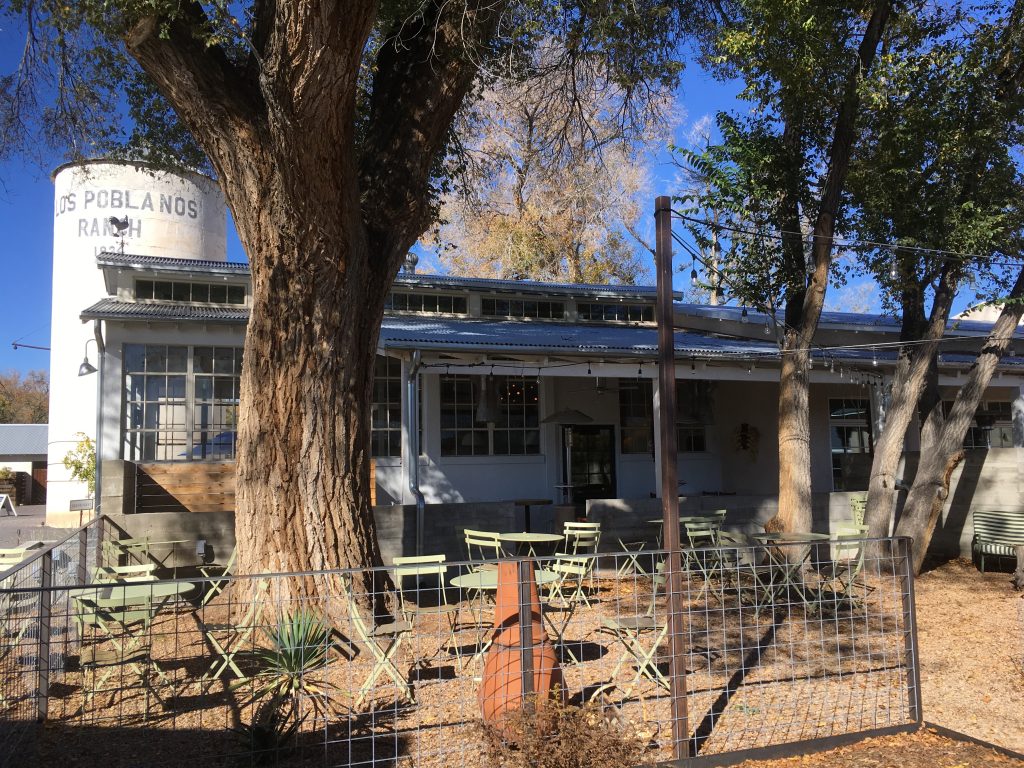
On the way out, Wes pointed to a box. “That’s the incubator where we hatched the peacocks,” he noted.
It seems everything happens organically at Los Poblanos, from chicks to decisions.
When I was there the restaurant was only open for dinner. It’s worth planning a dinner at Los Poblanos if you love farm-grown meals as much as I do.
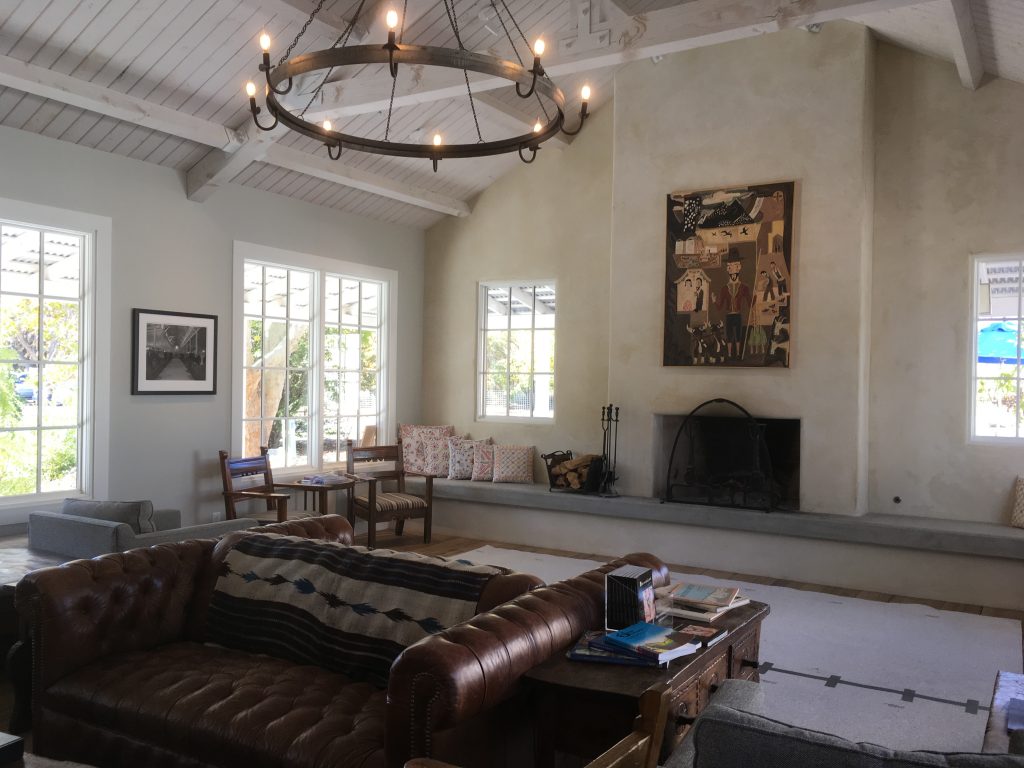
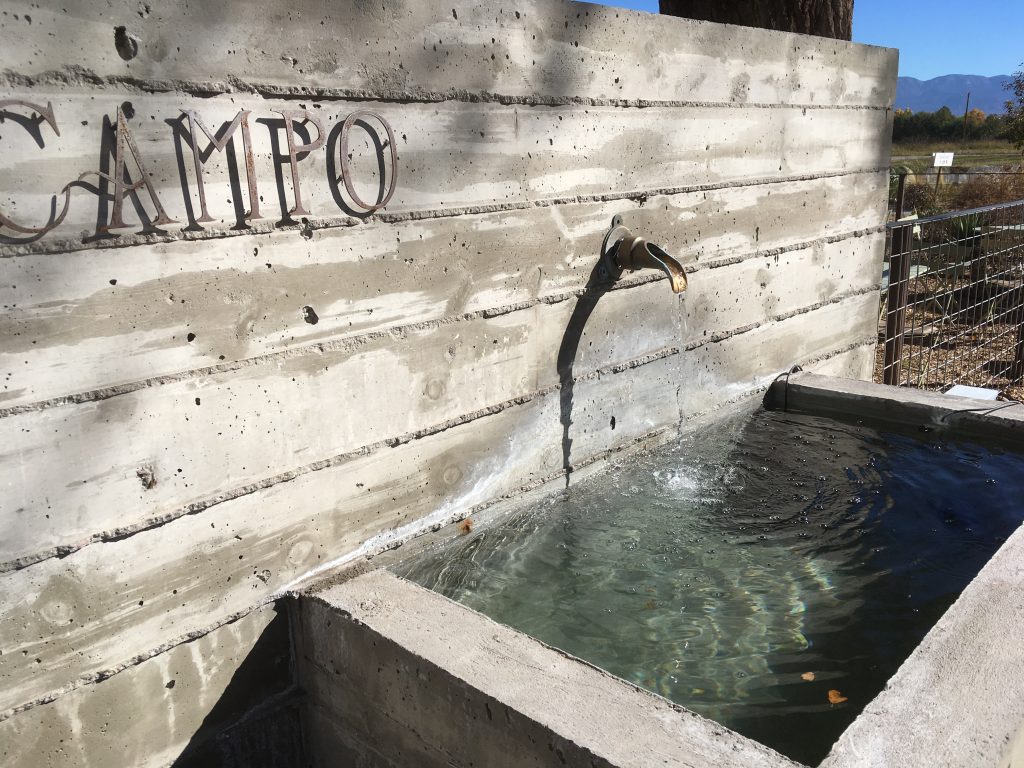
Check out Los Poblanos reviews on TripAdvisor or see what’s coming up on the Los Poblanos calendar.
Other Southwest Highlights
Agritopia near Phoenix is a fascinating sustainable food community
Love the Santa Fe Farmers Market
Great Blue Corn Pancakes in Santa Fe



